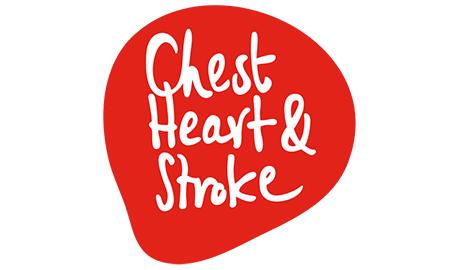Ask The Expert: Lowering Your Blood Pressure Through Diet
Heart HealthYour diet can have a big impact on your blood pressure levels. Here, Vanessa McMinn, SHSCT Public Health Dietitian, who is supporting our blood pressure campaign answers your top questions about the important relationship between diet and blood pressure.
How does diet affect blood pressure?
There are some foods that can increase or decrease our risk of high blood pressure. To get the balance right, here are five recommendations:
Salt
Adults should have no more than 6g of salt a day – about one teaspoon. It is the sodium in salt that contributes to high blood pressure, and it is present in all types of salt including sea salt, flakes, crystals, flavoured salt and celtic salts. It is important to greatly reduce all types of salt if trying to reduce your blood pressure.
To reduce the amount of salt in your food, try not to add salt to your food at the dinner table. Keep the saltshaker in the cupboard. Do not put it on the table. Try using herbs and spices to flavour your food when cooking. Reducing the number of ready meals and takeaways you eat will help cut down on salt intake.
Read food labels and compare products. Choose the one that has less salt added. You can find out more about reading food labels here. Reduce the amount of cured, smoked, and processed meats and fish in your diet. Try to avoid salty snacks such as crisps and salted nuts.
Alcohol
Too much alcohol can increase the risk of high blood pressure and cause damage to the heart muscle. We should have no more than 14 units of alcohol in one week.
Spread alcohol units across three or more days so you have some alcohol-free days.Do not binge drink i.e. no more than 3-4 units in one day.
Eat a healthy diet
A balanced diet that includes foods high in potassium, magnesium, calcium and fibre will help to lower blood pressure.
Fruit and vegetables are rich in potassium, magnesium, and fibre. Aim to eat at least five portions per day. Fresh, frozen, dried, juiced and canned all count. Practical ways to increase our fruit and vegetable intake include eating tinned (in their own juice or water), frozen, fresh, and dried fruit. If you are using canned varieties, look for those with lower salt and sugar.
1 portion = 80g fresh, frozen, or canned, 30g dried. Only one 150ml glass of pure fruit juice or smoothie can be counted per day. Vegetables can be added to a variety of meals e.g. grated carrot or red lentils in dishes such as minced beef. Blend cooked vegetables to make sauces. Bulk out curries, pasta dishes, stews etc with vegetables and beans/pulses. This reduces cost and overall calorie content. Snack on fruit in place of biscuits or buns.
Dairy foods are good sources of calcium. Opt for lower fat versions such as semi skimmed milk, low-fat yoghurts, and low-fat cheese. Include two to three servings per day.
Wholegrain foods like wholegrain breakfast cereals and breads, brown pasta and rice and oats are high in fibre, potassium and magnesium. Aim for two to three servings per day.
Protein is good for muscle strength, so have at least one portion with each meal. Consider having two or more portions of fish per week, one of which is oily, such as salmon or mackerel. Limit processed meats. 1 portion = 90g cooked meat or poultry, 140g fish or shellfish, 2 eggs, 100g meat alternative, 150g cooked beans or lentils, 30g nuts. We do not recommend high protein products.
Fats are high in energy and should be eaten sparingly but they can help you absorb vitamins like A, D, E and K. Limit high-fat foods like processed meats and pastries. Swap butter/ghee for unsaturated vegetable, rapeseed, olive and sunflower oils and spread. Nuts and seeds are also good choices.
Oily fish are rich in omega-3 fatty acids, which have been shown to have some effect on reducing blood pressure. Aim for at least one portion of something like salmon, pilchards, sardines, mackerel, herring, or trout per week.
Dietary supplements such as calcium, magnesium and potassium are not recommended for reducing blood pressure, as consuming more than you need can be harmful.
Have less caffeine. Drinking a lot of caffeine, such as coffee, tea and cola drinks may increase your blood pressure.
Move more
Being physically active and taking regular exercise helps to reduce your blood pressure by keeping your heart and blood vessels in good condition and also helps with weight loss.
Try to build more physical activity into your daily routine by aiming for at least 150 minutes (2 ½ hours) of moderate intensity activity across a week. This means any activity that makes you feel warmer, breathe harder and makes your heart beat faster than usual. Speak with your doctor if you have heart problems or are new to exercise.
Manage your stress levels
Getting enough sleep, learning relaxation techniques, or asking for help, as well as eating a healthy diet, may all help. Feeling stressed can raise blood pressure for a short time, which is normal. However, behaviours linked to stress like overeating, eating too much salt, drinking too much alcohol and not being active enough can lead to long term high blood pressure.
To view our Heart Health articles, please click here.















































































